#literary characters
Photo


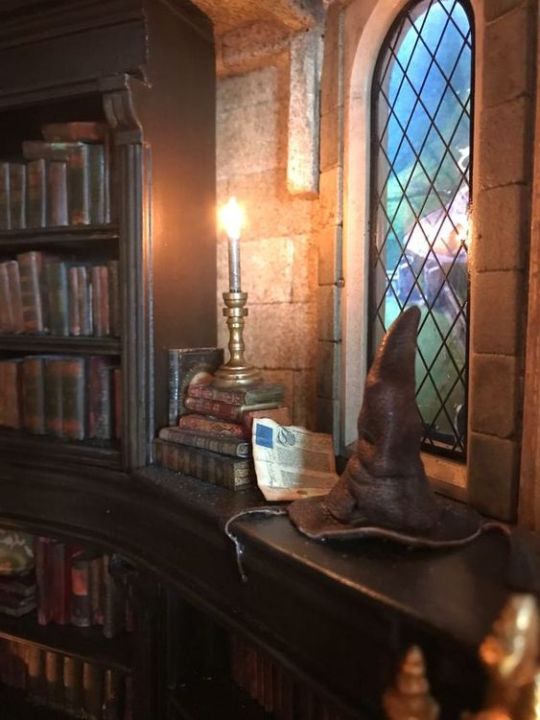
𝐇𝐨𝐠𝐰𝐚𝐫𝐭𝐬 𝐇𝐨𝐮𝐬𝐞𝐬 𝐄𝐱𝐩𝐥𝐚𝐢𝐧𝐞𝐝
Like I did with the moral alignments, I thought I would make a post about why and how I sort characters into Hogwarts Houses! There are also quizzes so you can figure it out for yourself as well. I go into detail about each House, what they represent, their background and what it means to be sorted into a certain House.
I hope you enjoy!
*just because I’m talking about Harry Potter doesn’t mean I align with the transphobic views of J.K. Rowling. There is no room for transphobia on my page, and I support the trans and LGBTQIA+ community*
Figuring out which Hogwarts House you belong to has been around since the HP series came out. But I think there’s more to it than simply choosing to be in ‘the brave house’ or ‘the smart house.’ I think it reveals a lot about a person - or rather, a large aspect.
Here are a few tests for you to try, comment below what you got!
Test 1 (the ‘official’ Wizarding World quiz)
Test 2 (from IDRlabs, they have other personality quizzes as well!)
Test 3 (Here’s the full Pottermore quiz. The 1st quiz will only have a few questions, so that’s why I don’t think it’s fully accurate to take)
Test 4 (A really good one from Quotev, the questions/answers aren’t obvious)
Gryffindor: Do what is right.
Hufflepuff: Do what is kind.
Ravenclaw: Do what is wise.
Slytherin: Do what is necessary.
𝐆𝐑𝐘𝐅𝐅𝐈𝐍𝐃𝐎𝐑
“ Where dwell the brave at heart, their daring, nerve and chivalry set Gryffindors apart “
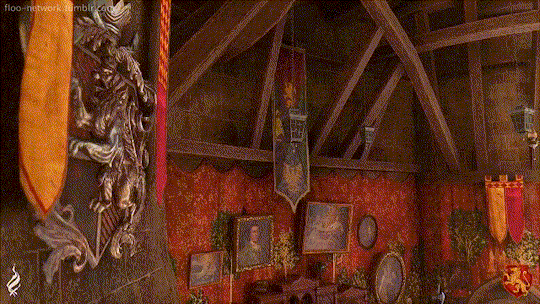
𝐸𝑙𝑒𝑚𝑒𝑛𝑡: Fire
𝐹𝑜𝑢𝑛𝑑𝑒𝑑 𝑏𝑦: ‘Bold Gryffindor, from wild moor’, Godric Gryffindor.
Dwelled at Godric’s Hollow
Was an accomplished dueller
A fair man, he believed that any child who displayed magical abilities before their 11th birthday should be able to attend Hogwarts.
Gryffindor was the original owner of the Sorting Hat
Gryffindor also had a sword made, which would present itself to any true Gryffindor in a moment of need.
He was allegedly the best friend of Slytherin before he left Hogwarts
Godric will always be known for his accomplished skills in battle, and his fight against Muggle discrimination in the wizarding world.
𝐸𝑠𝑡𝑎𝑏𝑙𝑖𝑠𝘩𝑒𝑑 𝑡𝑟𝑎𝑖𝑡𝑠:
Courage
Bravery
Standing up for what you believe in - even if your voice shakes.
Caring about the greater good
Daring/Bold
Having a deep need to do the right thing
Standing out from the crowd
𝐶𝘩𝑎𝑟𝑎𝑐𝑡𝑒𝑟𝑠 𝑡𝘩𝑎𝑡 𝑟𝑒𝑝𝑟𝑒𝑠𝑒𝑛𝑡 𝑡𝘩𝑖𝑠 𝐻𝑜𝑢𝑠𝑒:
Lucy Pevensie
Thor
Mulan
Katniss Everdeen
Merida
Batman/Bruce Wayne
Buffy Summers
Chandler Bing
𝐇𝐔𝐅𝐅𝐋𝐄𝐏𝐔𝐅𝐅
“ You might belong in Hufflepuff, Where they are just and loyal. Those patient Hufflepuffs are true. And unafraid of toil. “

𝐸𝑙𝑒𝑚𝑒𝑛𝑡: Earth
𝐹𝑜𝑢𝑛𝑑𝑒𝑑 𝑏𝑦: ‘From valley broad,’ Helga Hufflepuff
A kind and warm woman who believed in loyalty, patience and hard-work as the best abilities a person can possess
Was a brilliant cook and had remarkable skills for preparing food. Her recipes are still used in Hogwarts to this day.
She brought the house-elves to Hogwarts
Owner of Hufflepuff’s Cup
She was the best friend of Rowena Ravenclaw
𝐸𝑠𝑡𝑎𝑏𝑙𝑖𝑠𝘩𝑒𝑑 𝑡𝑟𝑎𝑖𝑡𝑠:
Loyalty
A need for justice. A lot of the Hufflepuff and Gryffindor traits are intertwined, but the difference is that Gryffindors don’t need to know a person to feel the need to look out for them.
Patient
Believe in fairness and equality (Helga Hufflepuff was the only founder who believed everyone should have a fair chance in being taught)
Accepting
Thinks about other people more than themselves
Would do anything at all, for family
𝐶𝘩𝑎𝑟𝑎𝑐𝑡𝑒𝑟𝑠 𝑡𝘩𝑎𝑡 𝑟𝑒𝑝𝑟𝑒𝑠𝑒𝑛𝑡 𝑡𝘩𝑖𝑠 𝐻𝑜𝑢𝑠𝑒:
Edmund Pevensie
Antman
Jay Gatsby
Okoye
Samwise Gamgee
Michael Scott
Alfred Pennyworth
Joey Tribbiani
Phoebe Buffay
𝐑𝐀𝐕𝐄𝐍𝐂𝐋𝐀𝐖
“ Or yet in wise old Ravenclaw, If you’ve a ready mind, Where those of wit and learning, Will always find their kind. “

𝐸𝑙𝑒𝑚𝑒𝑛𝑡: Air
𝐹𝑜𝑢𝑛𝑑𝑒𝑑 𝑏𝑦: ‘From Glen,’ Rowena Ravenclaw
A sharp and intelligent woman
She wanted to make Hogwarts the finest wizarding school in the world, teaching only those with the highest intelligence
Rowena wore a diadem that was said to grant wisdom to the wearer, however, Rowena’s own daughter grew jealous of her mother’s incredible intelligence. Helena Ravenclaw stole her mother’s diadem and ran away, a fact that Rowena kept hidden from her fellow founders even when she fell ill.
Wanting to see Helena before she died, Rowena sent a man to bring Helena home. Unfortunately, that man was the Bloody Baron, who was in love with Helena, and stabbed her in a rage when she refused to come home.
After Helena was tragically killed, legend tells us that Rowena Ravenclaw died of a broken heart.
She was the best friend of Helga Hufflepuff
𝐸𝑠𝑡𝑎𝑏𝑙𝑖𝑠𝘩𝑒𝑑 𝑡𝑟𝑎𝑖𝑡𝑠:
Intelligence
Wisdom
Witty
Open-minded - don’t mix well with traditional, close-minded people. Ravenclaws see the big picture, they think about what things could be, rather than what things are.
They think outside of the box, they don’t like being confined by rules or traditions.
Unique
Individualistic/Original
Actually very intuitive
𝐶𝘩𝑎𝑟𝑎𝑐𝑡𝑒𝑟𝑠 𝑡𝘩𝑎𝑡 𝑟𝑒𝑝𝑟𝑒𝑠𝑒𝑛𝑡 𝑡𝘩𝑖𝑠 𝐻𝑜𝑢𝑠𝑒:
Susan Pevensie
Sherlock Holmes
Bruce Banner
James Bond
Annabeth Chase
Mary Poppins
Gandalf
Monica Geller
Ross Geller
𝐒𝐋𝐘𝐓𝐇𝐄𝐑𝐈𝐍
“ Or perhaps in Slytherin, You’ll make your real friends. These cunning folk use any means to achieve their ends. “

𝐸𝑙𝑒𝑚𝑒𝑛𝑡: Water
𝐹𝑜𝑢𝑛𝑑𝑒𝑑 𝑏𝑦: ‘From Fen’, Salazar Slytherin
He believed strongly that only wizards of pure blood
This belief caused a big rift between the founders, especially Gryffindor, which led to the depature of Salazar
Despite his flaws, Salazar was a talented wizard, skilled in Legilemency and Parseltongue
Before he left, however, he created the Chamber of Secrets
𝐸𝑠𝑡𝑎𝑏𝑙𝑖𝑠𝘩𝑒𝑑 𝑡𝑟𝑎𝑖𝑡𝑠:
Ambition
Determination
Cunning
Traditional
Strategic
Willing to do whatever it takes to achieve their goals; even using others for their gain.
Not all Slytherins use these traits for personal gain, however, because the founder was evil - doesn’t mean every Slytherin is.
Resourceful
Cleverness
Family means a lot to them
Desires respect
𝐶𝘩𝑎𝑟𝑎𝑐𝑡𝑒𝑟𝑠 𝑡𝘩𝑎𝑡 𝑟𝑒𝑝𝑟𝑒𝑠𝑒𝑛𝑡 𝑡𝘩𝑖𝑠 𝐻𝑜𝑢𝑠𝑒:
Peter Pevensie
Natasha Romanoff
Daenerys Targaryen
Lady MacBeth
Wednesday Addams
Selina Kyle/Catwoman
Rachel Green
Harley Quinn
#witch the writer#hogwarts house#character profiles#gryffindor#hufflepuff#ravenclaw#slytherin#godric gryffindor#helga hufflepuff#rowena ravenclaw#salazar slytherin#harry potter#hp#hogwarts#personality#marvel#mcu#dc comics#literary characters#sorting#sorting hogwarts houses#sorting characters#the elements#air#earth#water#fire#narnia#shakespeare#addams family
515 notes
·
View notes
Text
Deconstructing Mr Darcy
My favourite character in all Austen canon is Mr Darcy. Unfortunately, as soon as I say this, everybody is like

Because when I say this people think of this…

And this…

But that’s not why he’s my favourite character.
There is this famous quote by P.D. James in which she argues that Austen's Emma is like a predecessor of the detective novel, in the way that she sprinkles clues as to what's really going on with Frank Churchill.
And ever since, I've been reading Pride and Prejudice differently, because of course she does something similar there too.
Specifically, Austen constructs this elaborate character puzzle with Mr Darcy at its centre. Every time he and Elizabeth clash, throughout the novel, one of the central conflicts sparks up: what is Darcy really like?
Elizabeth’s early interest in him is often interpreted as sexual tension/latent attraction. I’m not saying this isn’t the case (you can argue about this). But what is evident is that her intellectual interest in characters is roused by him. Because, well, he really presents her with a tricky puzzle.
1) The mysterious man at the ball
When Elizabeth and her sisters go to the Assembly Ball at Meryton, remember, they go there to ogle Mr Bingley. He is the rich, handsome bachelor they hope to dance with when they get there.
But then they actually arrive and it’s someone else who has everyone talking. Mr Darcy. He’s the tall, handsome stranger who turns out to be much, much richer than Mr Bingley, and who gets everyone excited.
Who will he dance with?
Well, nobody because he’s like way too important to deign to notice any of them. He stoops to acknowledge that Jane, literally the most beautiful girl in the county, is somewhat pretty. But her sister is totally beneath his notice.
With this twist upon a twist, the author invites Elizabeth and the reader to abandon their first suspicion that he’s the hero and to consider him a little absurd instead. And this is a comic novel. By that point we have met multiple absurd characters, so we know this is what is to be expected from this story.
2) The cracks
The narrator hints that Darcy enjoys a good gossip with his friends and spends his free time dissecting the many ways in which the local women don’t interest him. Again, absurd, remember? Elizabeth is among the women he judges harshly, but as he sees more and more of her this happens:
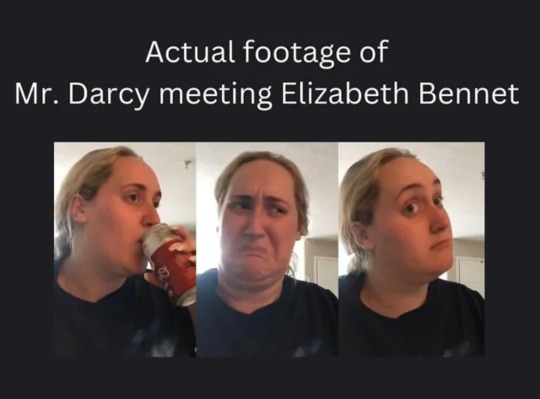
So the reader is now invited to some irony which Elizabeth is not privileged to enjoy. But it’s all in service of the comedy, right? Because it’s more delicious for the reader to see the contrast of how much Elizabeth is wrong about what he thinks of her.
You, the reader, have a good chuckle with the author about this, don’t you? But while you’re laughing you’re MISSING A CLUE! And it’s right there: Elizabeth is wrong about Darcy. It’s lampshading the fact that she doesn’t really understand him at all.
3) The real deal
So then we get a little closer to Darcy. Elizabeth stays with him and his friends at Netherfield to nurse her sister. As Darcy continues to admire her, and as she continues to be oblivious, one evening he approaches her and this happens:
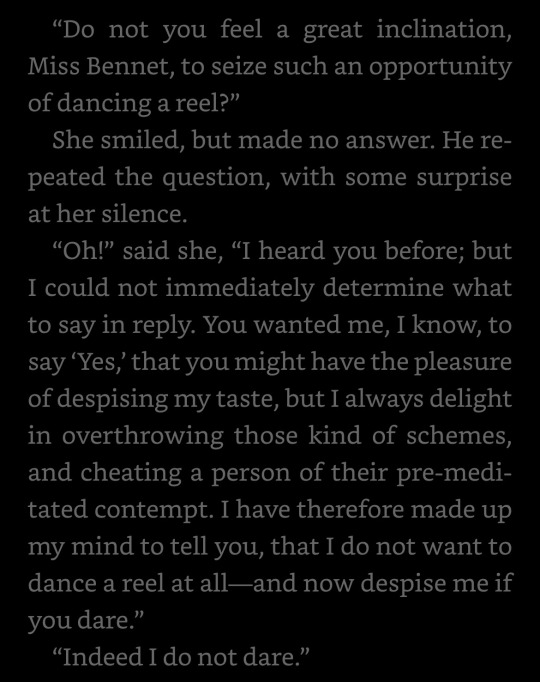
Again Elizabeth is wrong about Darcy, but here Austen adds another clue:

So… the guy who has the superpower of turning any normal situation awkward makes this super awkward situation… charming?
And then Austen adds some misdirection by immediately adding:
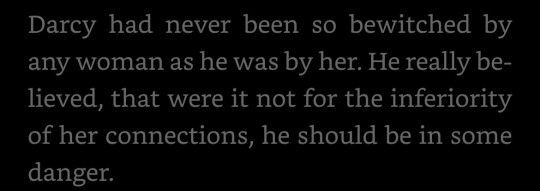
And we’re focusing on the irony that this guy is more enchanted with her the more she rejects him. And we’re a little amazed at how arrogant this guy is that he doesn’t see how much he is disliked at this moment. Almost as self-important and oblivious as Mr Collins.
And so we don’t see that… he’s nice? And I mean, an arrogant, self-important arse, as Elizabeth thinks of him, wouldn’t be nice at this point. He’d be wounded. He’d make it awkward. Importantly, he’d make it awkward for her.
It’s hard to get out of a situation like this gracefully. But he can. He knows how. He has that ability.
And this works as a bit of foreshadowing too, of course. Dancing and courtship are pretty strongly linked in Austen (and culturally in that era) and so his acceptance of her rejection in this manner lampshades his character as a lover.
But there’s so much more. That time at Netherfield is so rich in character studies, I feel like someone could write several PhD theses on that section of the book alone.
My favourite is the one that happens when Darcy and Elizabeth literally talk about characters. Miss Bingley asserts that Darcy is perfect, has no flaws. Elizabeth is delighted: this is just what she thinks Darcy thinks of himself.
Darcy says: No, I’m plenty flawed, thanks.
Elizabeth is curious now. Go on, oh prideful one, enlighten us mere mortals!
Darcy explains that he’s resentful, that he doesn’t forget or forgive easily.
Elizabeth has to admit that that’s a non-ridiculous answer. She’s disappointed, a little, because what good is that to her, since she wanted to have a good laugh at this expense? But he predicted as much and at the beginning of this conversation challenged her on this to preempt her making a joke of the whole conversation.
He wants to continue to be serious and this happens:
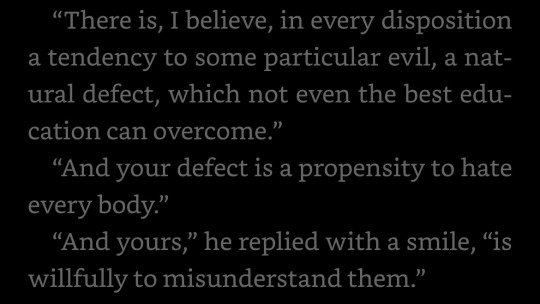
Again, Austen’s sleight of hand: when we first read this, it sounds more like Darcy is just a misanthrope who has a negative and pessimistic attitude towards people. That’s how Elizabeth hears it too.
But he tells us himself: that’s not what he means. Elizabeth (and the reader) is misunderstanding him. And he shows us, right away, by taking her jibe in good humour right then and there.
Multiple times, Elizabeth teases or attacks him, and he’s cheerful about it. He thinks it’s kind of funny. Bingley gets a shot or two in, and Darcy takes that on the chest too.
Austen manages to create this impression of him in the reader’s mind of a guy who is angry and prideful all the time, but when we review his actions, how often is this really true?
4) Darcy through the eyes of others
In many analyses, Elizabeth is blamed for being so easily taken in and so stubbornly mistaken in Darcy, but in all fairness, look at what she has to work with!
So much of what she learns about him is through other people, and so what she knows is filtered by their interests, skewed perspectives and compromised judgements. The fawning of Caroline Bingley and Mr Collins, the hatred of George Wickham, the deference of Mr Bingley, the lack of deference from Colonel Fitzwilliam, the way Charlotte views men, the way Jane always finds good things to say about anybody, her mother’s vulgar prejudice, all of it adds to a picture of absolute confusion. And the worst offender is Darcy himself, of course, because he stubbornly refuses to clarify anything about himself, partly because he can’t and partly because he just won’t.
Darcy’s stay in Hertfordshire culminates in this exchange, at the Netherfield Ball, between Darcy and Elizabeth:
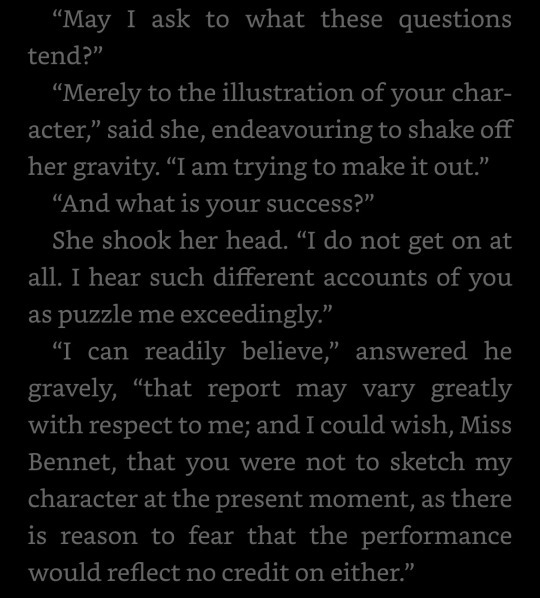
5) Mr Darcy in love
Darcy really is a hard nut to crack, and in large part it’s because he makes himself hard to crack. The baseline here is pretty bad but it gets so much worse the more he loves Elizabeth and the more he is determined to hide from her.
Before, he just doesn’t care what people think of him. But now, he does care and he desperately wants them not to know that he has, annoyingly and embarrassingly, fallen head over heels in love.
Austen strings us along in this confusion until the absolute shock that comes with his proposal. Even though we as readers always knew more than Elizabeth did, and even though both we the readers and Elizabeth had tonnes of evidence and clues about Darcy and his real character, this twist comes as a complete surprise.
And because we, the readers, and Elizabeth, the protagonist, are surprised, we don’t notice another important clue. Darcy is also shocked. Like, we’re all sitting in this scene, aghast, amazed, shocked. We all came to this point following a trail of wrong clues, misdirections, misunderstandings and mistaken assumptions.
But what does this tell us about Darcy? Other than what he finally reveals through his letter, we learn that the entire time he thought Elizabeth:
Knew what she was doing, flirting with and encouraging him
Understood his prevarication
Expected a proposal
The poor man doesn’t come out of this looking good, does he? It makes him look really arrogant, self-important and big-headed. And to an extent, well, it is.
But there’s also another, kinder, reading to all this: that he’s someone who overthinks things.
There’s the conversation in Netherfield with Bingley where he deprecates those who do things rapidly as if it were a virtue. We know from other parts of the novel that he’s a bookish (he prides himself in his library), intellectual (he admires those who read), “clever” (in the narrator’s own words) guy.
Used to responsibility, used to being relied on to guide and advise people, used to solving knotty problems, Darcy approached his problem (loving a girl who is in every way beneath him) in the same way. He deserves a large portion of the smackdown he receives—no argument from me here. It does him good, later, as we all know. But when we revisit the novel, these deeper dimensions of his character become more apparent whenever we come to this moment: that Darcy’s flaws are not just the obvious ones here (pride, arrogance, lack of manners) but also shades of other traits of his.
6) A mystery to the very end
At this point, Austen begins to clear the mist a little. Darcy gets such a blow with Elizabeth’s rejection that our heart does go out to him, and then the letter explains so much, you begin to feel like he’s been wronged with our harsh view of him. We’re brought into his home, and so, slowly, we are shown that, yes, he’s sort of quiet and taciturn, and maybe his people skills aren’t exactly up there, but he’s actually quite nice, at least willing to try to be outwardly more friendly, but in essence he’s a kind person and a responsible landowner. Elizabeth begins to see that he’s rather attractive.
The reader and Elizabeth begin to thaw towards him. And then Lydia runs away, All seems lost. Wickham has been such a wicked force in Darcy’s life, Elizabeth has already tried Darcy to the edge of what any reasonable man would put up with and Elizabeth’s family exposes herself in the worst possible way.
What I love is that Darcy’s true character is always, always most visible through his actions. This mirrors the whole point of the novel of course: that we should pay attention not to impressions, superficialities (words) but to what people really are, and what they actually do (actions). So, Darcy doesn’t say anything, in fact he swears everybody to silence. He just does. He saves Elizabeth’s family in the most warm-hearted, generous and forgiving way possible.
Anyway, I could write books on this subject just because of how much there is to say, and this is but the tip of the iceberg, but I’ll leave off here. I just wanted to explain why I love Mr Darcy, the character, and why you should too. Not as a literary romantic hero, not as a literary crush but as a really interesting, beautifully written, complex character in his own right.
83 notes
·
View notes
Photo
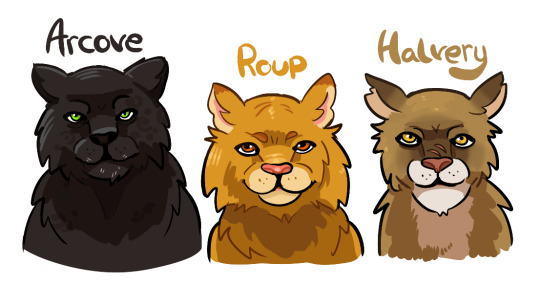
More Hunters Universe characters! Just finished the rest of the series, which star the old cat boys. Thanks for writing these awesome books, @alhilton!
26 notes
·
View notes
Text
rip septimus warren smith you would have loved tumblr
#i included this in the tags to another post but i felt it needed its own post#mrs dalloway#septimus warren smith#literary characters#literature#classic literature#virginia woolf#modern au#british literature#british lit#english literature#english lit#modernist literature
12 notes
·
View notes
Text

I made this drawing of Philip Marlowe about two years ago, I don't know if did a good job but it lot of fun draw.
#Philip Marlowe#Private Investigator#Raymond Chandler#Film Noir#Hardboiled Detective#Traditional Art#Color Pencils#Colored Pencils#Crime Fiction#Literary Characters#Literature
3 notes
·
View notes
Text
Elizabeth Bennet (Pride & Prejudice) Illustration
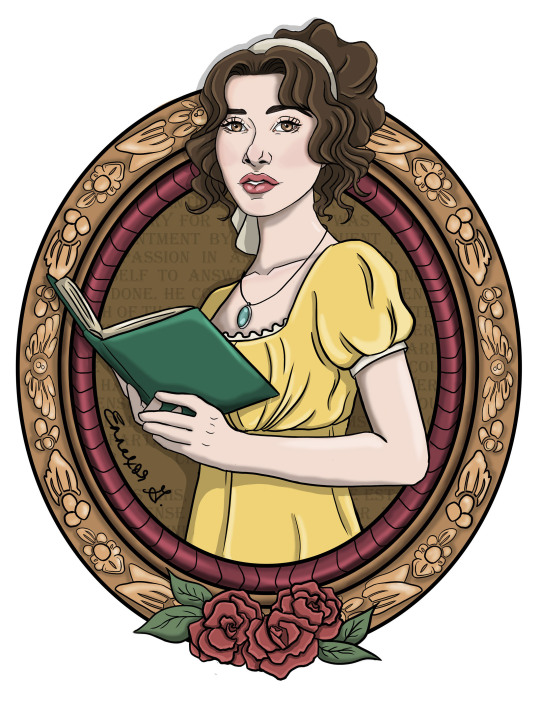
#elizabeth bennet#pride and prejudice#art#digital art#digital illustration#illustration#character design#literature#book characters#classic books#literary characters#english literature#books
14 notes
·
View notes
Text
My first ever Sporcle Editor's Pick! Picked a couple of months short of 14 years ago... Happy Valentine's Day!
#Editor's Picks#Sporcle#My Quizzes#Literature#Couples#Literary Characters#Authors#Love#Valentine's Day
0 notes
Note
I ABSOLUTELY ADORE YOUR SQQ HE LOOKS SO FUCKINH DONE WITH LIFE

The recipe for SQQ is: calm on the outside, screaming on the inside.
#poorly drawn svsss#svsss#shen qingqiu#ask#No joke I'm pretty sure he is my favourite 'guy gets transporte'd to another world' character#I recently rewatched the (sadly never to be continued) animated version of SVSSS and I cant get over how perfect he is for the role#He is *so* done with everything going on around him. Forced to be calm and mean. Born to scream and be kind.#The gap between the internal and external dialogue is one of my fav character/writing quirks.#The personification of the 'he lied' dialogue tag.#Love how deep the SVSSS meta and literary analysis community gets with him. Piosplayhouse has opened my eyes to trans SQQ#what is the system is *not* a metaphor for pressure to adhere to societal norms of gender and sexuality?#I really need to finish the books...that is probably my biggest burning hole in my 'DNF' pile. I liked it! I just got busy.
1K notes
·
View notes
Photo
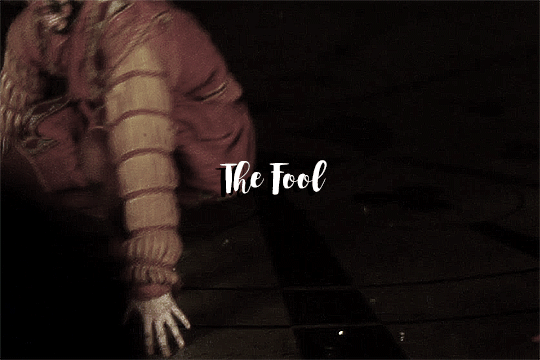
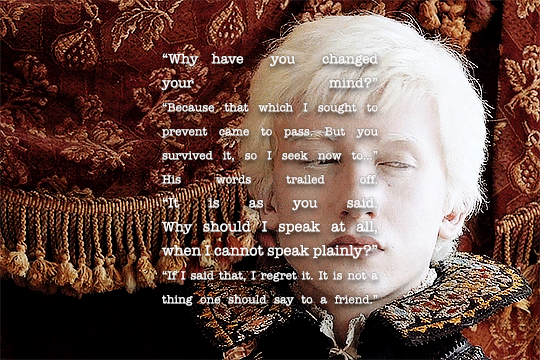
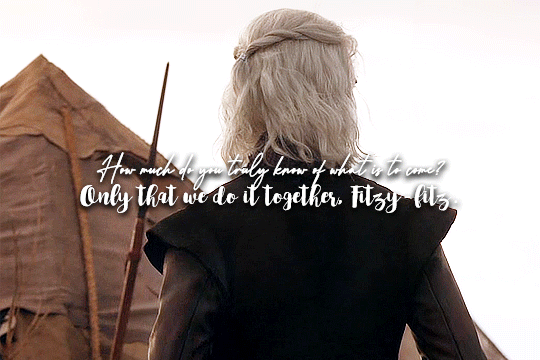

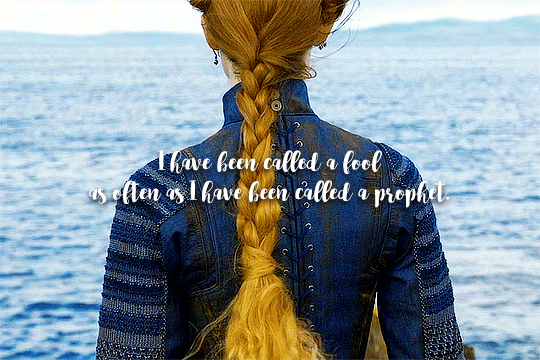
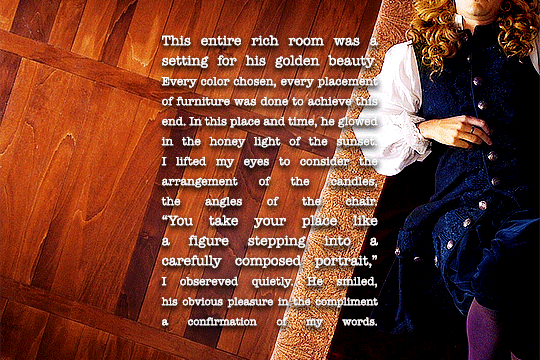
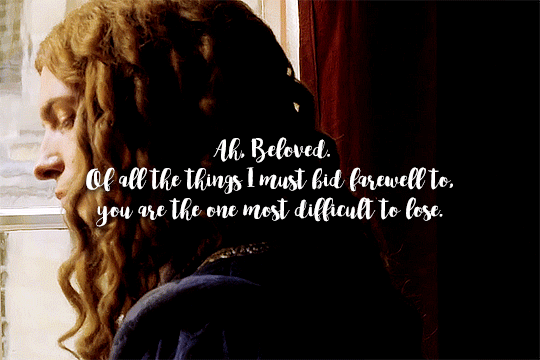
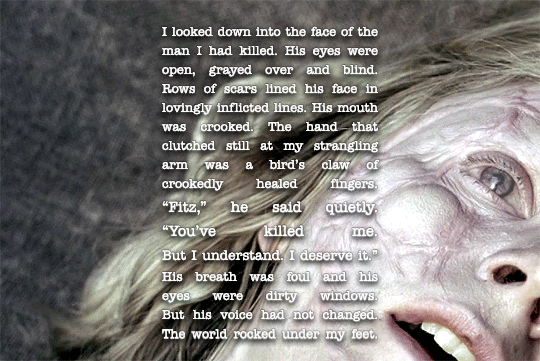
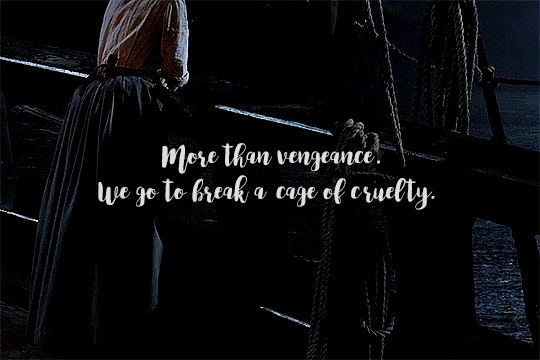
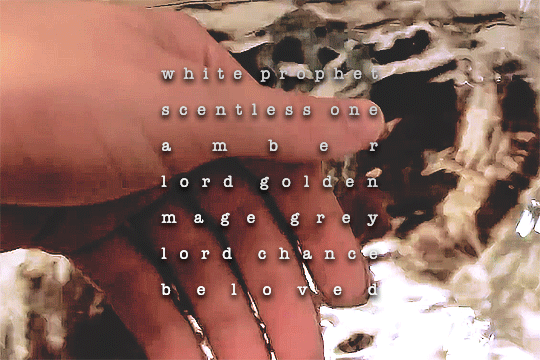
ROBIN HOBB’S REALM OF THE ELDERLINGS
>> The Fool
The Farseer Trilogy + The Liveship Traders Trilogy + The Tawny Man Trilogy + The Fitz and The Fool Trilogy
You know who I am. I have even given you my true name. As for what I am, you know that, too. You seek a false comfort when you demand that I define myself for you with words. Words do not contain or define any person. A heart can, if it is willing. But I fear yours is not. You know more of the whole of me than any person who breathes, yet you persist in insisting that all of that cannot be me. What would you have me cut off and leave behind? And why must I truncate myself in order to please you? I would never ask that of you.
#rote spoilers#realm of the elderlings#roteedit#bookedit#fantasyedit#the fool#the farseer trilogy#the liveship traders#the tawny man trilogy#the fitz and the fool trilogy#made by carolyn#the main reason i think there should be no actual rote adaptation is because it would be impossible to cast this character!#every gif here is from a different piece of media :)))))#i just hope it's cohesive to people other than myself because boy i tried!#like the whole point is that this character is passable as different people to pretty much everyone but fitz so#we're living with it :)))#anyway here's an ode to my genuine favorite literary character please give beloved a round of applause <3333
279 notes
·
View notes
Text
With the rise of booktok/booktwt, there's been this weird movement against literary criticism. It's a bizarre phenomenon, but this uptick in condemnation of criticism is so stifling. I understand that with the rise of these platforms, many people are being reintroduced into the habit of reading, which is why at the base level, I understand why many 'popular' books on booktok tend to be cozier.
The argument always falls into the 'this book means too much to me' or 'let people enjoy things,' which is rhetoric I understand -- at least fundamentally. But reading and writing have always been conduits for criticism, healthy natural criticism. We grow as writers and readers because of criticism. It's just so frustrating to see arguments like "how could you not like this character they've been the x trauma," or "why read this book if you're not going to come out liking it," and it's like...why not. That has always been the point of reading. Having a character go through copious amounts of trauma does not always translate to a character that's well-crafted. Good worldbuilding doesn't always translate to having a good story, or having beautiful prose doesn't always translate into a good plot.
There is just so much that goes into writing a story other than being able to formulate tropable (is that a word lol) characters. Good ideas don't always translate into good stories. And engaging critically with the text you read is how we figure that out, how we make sure authors are giving us a good craft. Writing is a form of entertainment too, and just like we'd do a poorly crafted show, we should always be questioning the things we read, even if we enjoy those things.
It's just werd to see people argue that we shouldn't read literature unless we know for certain we are going to like it. Or seeing people not be able to stand honest criticism of the world they've fallen in love with. I love ASOIAF -- but boy oh boy are there a lot of problems in the story: racial undertones, questionable writing decisions, weird ness overall. I also think engaging critically helps us understand how an author's biases can inform what they write. Like, HP Lovecraft wrote eerie stories, he was also a raging racist. But we can argue that his fear of PoC, his antisemitism, and all of his weird fears informed a lot of what he was writing. His writing is so eerie because a lot of that fear comes from very real, nasty places. It's not to say we have to censor his works, but he influences a lot of horror today and those fears, that racial undertone, it is still very prevalent in horror movies today. That fear of the 'unknown,'
Gone with the Wind is an incredibly racist book. It's also a well-written book. I think a lot of people also like confine criticism to just a syntax/prose/technical level -- when in reality criticism should also be applied on an ideological level. Books that are well-written, well-plotted, etc., are also -- and should also -- be up for criticism. A book can be very well-written and also propagate harmful ideologies. I often read books that I know that (on an ideological level), I might not agree with. We can learn a lot from the books we read, even the ones we hate.
I just feel like we're getting to the point where people are just telling people to 'shut up and read' and making spaces for conversation a uniform experience. I don't want to be in a space where everyone agrees with the same point. Either people won't accept criticism of their favorite book, or they think criticism shouldn't be applied to books they think are well written. Reading invokes natural criticism -- so does writing. That's literally what writing is; asking questions, interrogating the world around you. It's why we have literary devices, techniques, and elements. It's never just taking the words being printed at face value.
You can identify with a character's trauma and still understand that their badly written. You can read a story, hate everything about it, and still like a character. As I stated a while back, I'm reading Fourth Wing; the book is terrible, but I like the main character. The worldbuilding is also terrible, but the author writes her PoC characters with respect. It's not hard to acknowledge one thing about the text, and still find enough to enjoy the book. And authors grow when we're honest about what worked and what didn't work. Shadow and Bone was very formulaic and derivative at points, but Six of Crows is much more inventive and inclusive. Veronica Roth's Carve the Mark had some weird racial problems, but Chosen Ones was a much better book in terms of representation. Percy Jackson is the same way. These writers grow, not just by virtue of time, but because they were critiqued and listened to that critique. C.S. Lewis and Tolkien always publically criticized each other's work. Zora Neale Hurston and Langston Hughes had a legendary friendship and back and forth with one another's works which provides so much insight into the conversations black authors and creatives were having.
Writing has always been about asking questions; prodding here and there, critiquing. It has always been a conversation, a dialogue. I urge people to love what they read, and read what they love, but always ask questions, always understand different perspectives, and always keep your mind open. Please stop stifling and controlling the conversations about your favorite literature, and please understand that everyone will not come out with the same reading experience as you. It doesn't make their experience any less valid than yours.
#long post#literary critique#literary criticism#booktok#books & libraries#booktwitter#but yeah it’s really hard for me to embrace booktube#and BookTok when the conversations that are most prevalent#are the ones telling people to not be critical of what they’re reading#esp the ones who desparately don’t want to understand differing opinions#‘how could you not like this’ or ‘how could you hate this character’#easily#because I can#a traumatic backstory isn’t gonna erase a bad story#it isn’t going to make a character or book compelling#more trauma doesn’t make the story more complex#see: with fourth wing.#thank you for reading this long rant#congrats if you make it to the tags💀😭
1K notes
·
View notes
Text

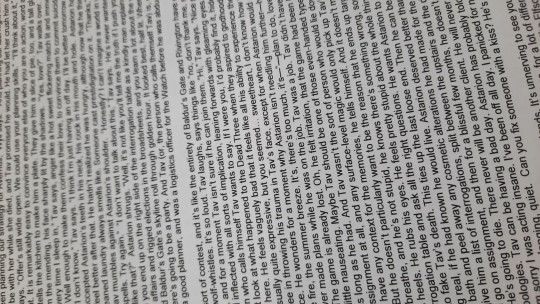

so i may or may not have printed out the entirety of @anonymousalchemist's amazing fic like a bird, like a stone onto three Very Large pieces of paper.
you might be asking, why, fay? why did you print out an entire 53k fic for a video game you've never played? well you see, if you read it, you would understand.
#bg3#tavsilkpax#for real though i'm going to do some Analysis#literary. artistic. statistical. character. all of those.#listen i can't draw and can rarely write. so my contribution to fandom is gonna be whatever weird shit my job enables me to do#and sometimes that is printing out an entire fanfiction so you can highlight names in different colours and look for Patterns#Publisher is a little bitch and tried to crash so many times while i was formatting this to print#didn't want to render a measly 54 000 words at once#astarion#tavstarion#bg3 fanfiction#i may never be free of my Silk Derangement Disorder#something about this boy just Grips me
217 notes
·
View notes
Text

THE DARK ERA - 黒の時代
(textless version below the cut)

#bungou stray dogs#bungo stray dogs#bsd#bsd fanart#bsd oda#bsd odasaku#osamu dazai and the dark era#a little dark era piece inspired by wanderer above the sea of fog by caspar david friedrich#i was intending to do a nice gentle illustration in honour of oda but it has ended up very dramatic as often happens asdffdgsd#and then i thought it would look quite cool as a book/movie cover so i added the text and made a nice mock-up!#i'm always keen to do artwork that has literary influence on the characters' birthdays so i might try to do another small little drawing#but i think i just wanted to represent how cool he is as a character! and how atmospheric and moving this arc is#i think it's the point which heightened my interest in the series - oda is so interesting and lovely#he is so fundamental to so much of the narrative too - it's quite fascinating#...also dazai is technically here but i won't tag him asdfgfdg#botanautical#tw blood
290 notes
·
View notes
Text
I truly do think one of the largest pitfalls among the "media consumption is my passion" crowd is the tendency to treat characters as human beings with agency rather than narrative tools manipulated by the author
#as soon as you start assigning agency to characters any criticism of the series comes under strawman fallacy arguments#about how humans make irrational choices not always understood by others etc etc etc#thus insulating the author and the work from any sort of meaningful criticism or analysis#i think current popular advice on character writing overemphasizes relatability and likability at the expense of narrative relevance#it certainly isn't hurtful to do exercises where you think about their coffee order or favourite animal or preferred toilet paper brand#but none of that matters in the end if you have no idea what purpose a character is supposed to serve in a literary sense
173 notes
·
View notes
Photo

Something different from me, a painterly sketch of Storm Ela-ferry from the Hunters Universe novels by @alhilton
28 notes
·
View notes
Text
nvm this is still on my brain. kim does not like to watch harry suffer… to say that kim takes satisfaction in harry’s pain is a huge misconstruing of his character.
the “getting thrashed like a schoolboy” line comes from a board game, lol. it’s a tease, not a cruelty. there’s never any line that implies that Kim enjoys seeing Harry taking actual morale damage.
he can be amused if you fail a check, but the check is always relatively inconsequential, and again, Harry isn’t taking damage in these.
Failing to pry the trash bin open:

Failing to shatter Ruby’s lorry window:

(also in both of these examples he only responds smugly if you choose for Harry to stubbornly dig in his heels. if Harry gets huffy, Kim teases. If Harry backs down right away Kim won’t rub it in, which feels significant to me! it reminds me of that recent post goin around about Kim meeting your energy!)
and here’s some reactions to failed checks where he does take damage.
Failing the jump to get your cloak:

Failing to break down Plaisance’s door:

he’s not laughing if Harry’s taking damage because he’s not a dick lol.
aaaaand here’s some other instances of morale/health damage and kim’s reactions.
alternate dialogue for failing the harbor jump:
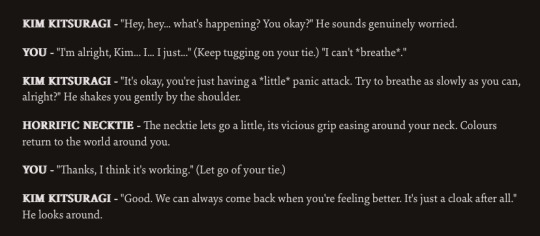
after the call with precinct 41:

seeing bullet holes in the wall:
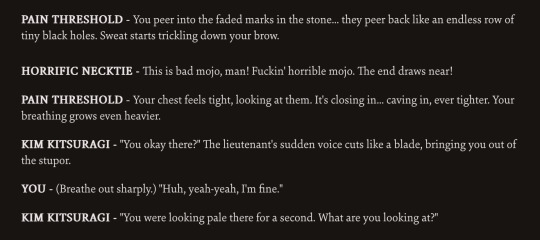
most significant examples to argue this point for me come when harry has done something to jeopardize the RCM’s image. which kim goes on and on about the importance of maintaining— and yet even here, he still extends worry and assurance.
telling Billie about her husband and handling it badly:
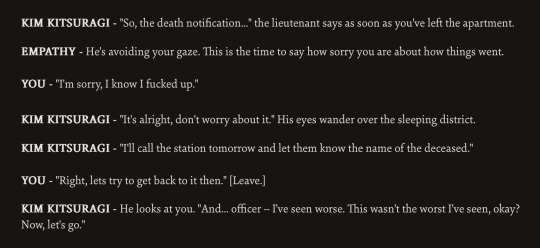
hardie authority check failure cock carousel:
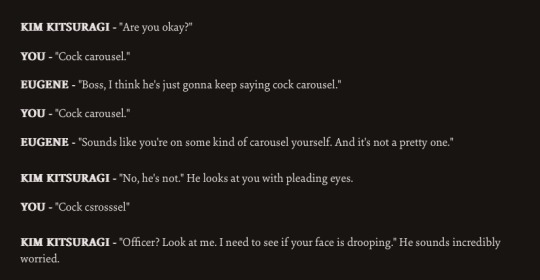
aaaaand the car. this line is one of the most mask-off kim moments we get in the game in my opinion, honestly.

tying this back to the schoolboy line— that line doesn’t show up if you have a negative reputation with Kim. if you have <1 rep, it gets replaced with him calling it “about four hours of our lives that we'll never get back,” lol.
it’s affectionate ribbing!! twisting it into anything else is bizarre 2 me lmao!
anyways. kim is a foil to every other cop we meet in the game specifically because he doesn’t view harry as a punching bag or a lost cause. gottlieb does nothing but sling jabs and glib jokes about harry’s health. torson+mclaine and the others laugh at harry’s panic attack over the radio. in response to harry’s suicide-by-car attempt(!!!!) jean yells about RCM budget. all kim’s lines in response to harry’s check failures and health-damage are consistent, explicit textual contrast against the callousness of the rest of the RCM. twisting kim’s character here requires a bad faith interpretation of the whole game.
#disco elysium#kim kitsuragi#sometimes i think that fandom Hot Takes get posted just for the sake of contrasting with the majority interpretation of the media#which can be fun lol. i personally love being a pretentious contrarian when the shoe fits.#keyword when the shoe fits#sometimes it just comes off as#the thing where positive interpretations of the thing are somehow seen as lesser or naive#which i feel is so antithetical to DE’s core philosophy#it’s not naive to interpret a hopeful story as hopeful#it’s not naive to interpret a kind character as indeed kind#kindness has as much literary value as cruelty in storytelling#overcorrecting for the sake of overcorrecting in this case just feels very. meanspirited#i don’t want to come off as antagonizing because we are all just posting about a video game on tumblr dot com at the end of the day#it’s okay to Have Differing Opinions On Media#but like. there’s a reason the post Did Not Resonate lol#oh also if anyone has a link to the other post i referenced i’d love to link it in the post properly i just couldn’t find it </3#me talking
829 notes
·
View notes
Text
(i feel like analyzing stuff again so here we go) kaz is smart because he knows people. he loves puzzles, loves locks, loves taking things apart to figure out how they work. he says in soc that you figure people out like you figure anything else out, by taking it apart. kaz is smart because he finds enough out about people to make assumptions.
he knows what people will do, and often times it leaves the ones being duped going "how did he do that? how did he know?" kaz never truely knows something will 100% happen, he's just assuming it will and is almost always right.
in the begining of soc, when the crows are breaking matthias out of hellgate, kaz assumes wrong, though. he knows that jesper has a reputation for being late, so he assumes that jesper will take to the task of releasing the animals like he will anything else he does, and be late doing it. he has, in some sense, taken jesper apart. he knows what jesper does, and he plans around this assumption, however ends up being wrong. nothing extremely consequential happens because of his assumption, but it proves that kaz will assume things with confidence.
a huge aspect to why kaz is so successful in his planning and overall schemes is because he knows how to make a good assumption. he has inej gathering him intel, which enables him to make such confident and correct guesses about how people will act.
one instance of kaz's assumptions being correct is the whole geels and 19 burstraat situation in the beginning of soc. when kaz threatens to burn down geels' lover's home, geels could have not cared, could have shot kaz right there, but he didn't. geels doesn't, and kaz continues very boldly facing him. why? because kaz knows how geels will act.
another instance is in ck when kaz kidnaps alys and uses her to get inej back. at this point, kaz knows how van eck will act. van eck has already duped kaz once, and i imagine after this one of the things kaz does to insure it never happens again is over analyzing and taking him apart. it works in this instance, because kaz has already seen how much van eck cares about a "worthy heir," and alys is literally holding that. kaz has taken van eck apart, and had figured him out enough to make a bold and correct act based on assumption.
all this to say, kaz thinks and thinks and thinks and is always thinking and picking everything apart, and that is the key to why he can get away with everything he does. and maybe one day his assumptions that make him so smart will fail him, and maybe one day they'll be fatally wrong.
#i'm back at it again with the literary analysis#my english teacher loves me#weird statement but yk what i mean#i feel like (and know) that i'm constantly picking apart this duology and i don't think i'll stop anytime soon#i could yap forever but i'll stop for y'all's sake#UGH i just love kaz's character so much#so COMPLEX and so much to ANALYZE#kaz brekker#side note yall i've been spelling brekker like brekkar for the longest time and no one was gonna TELL ME???#kazzle dazzle#six of crows#literary analysis#yapping#yapping fr#six of crows fandom#soc
109 notes
·
View notes